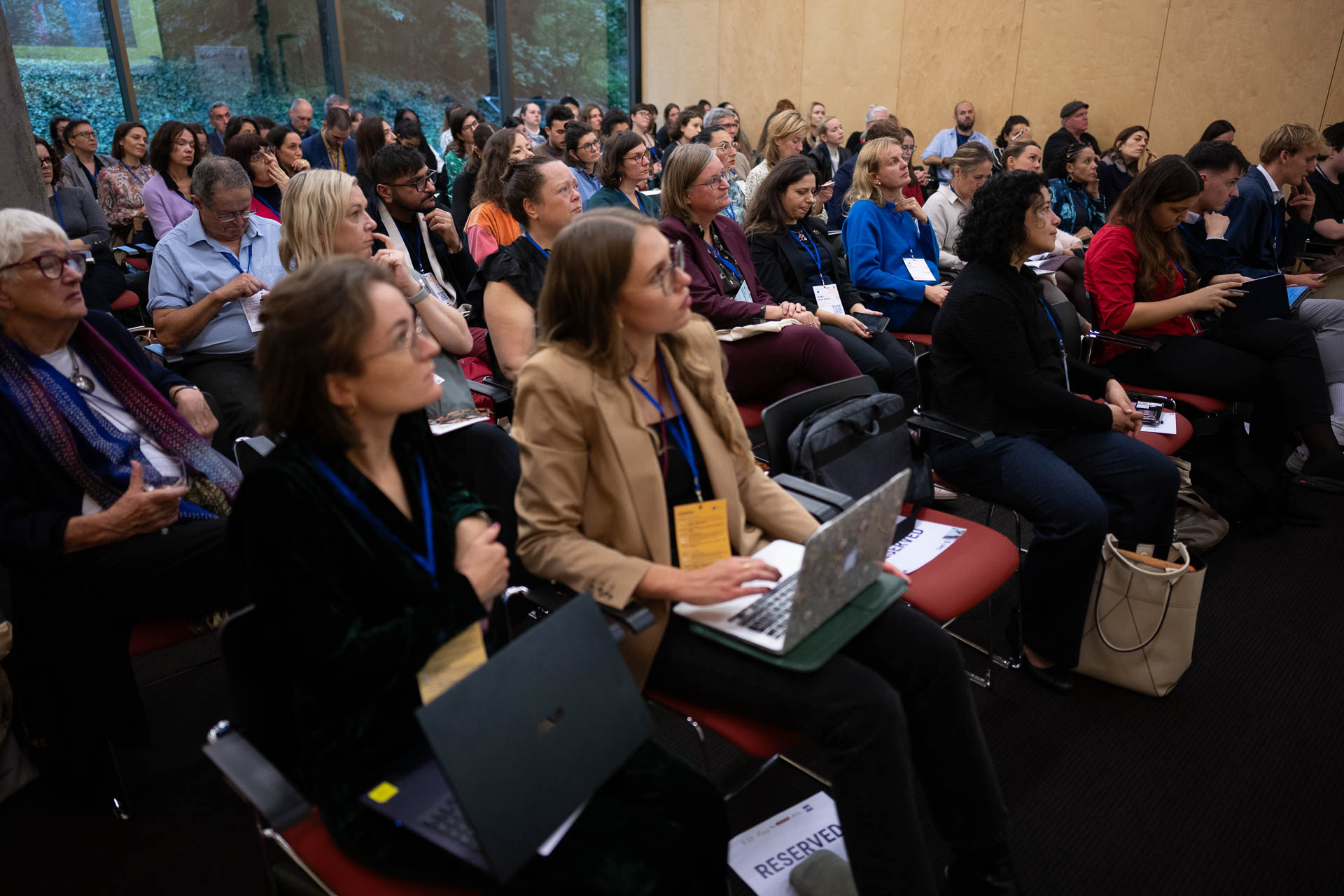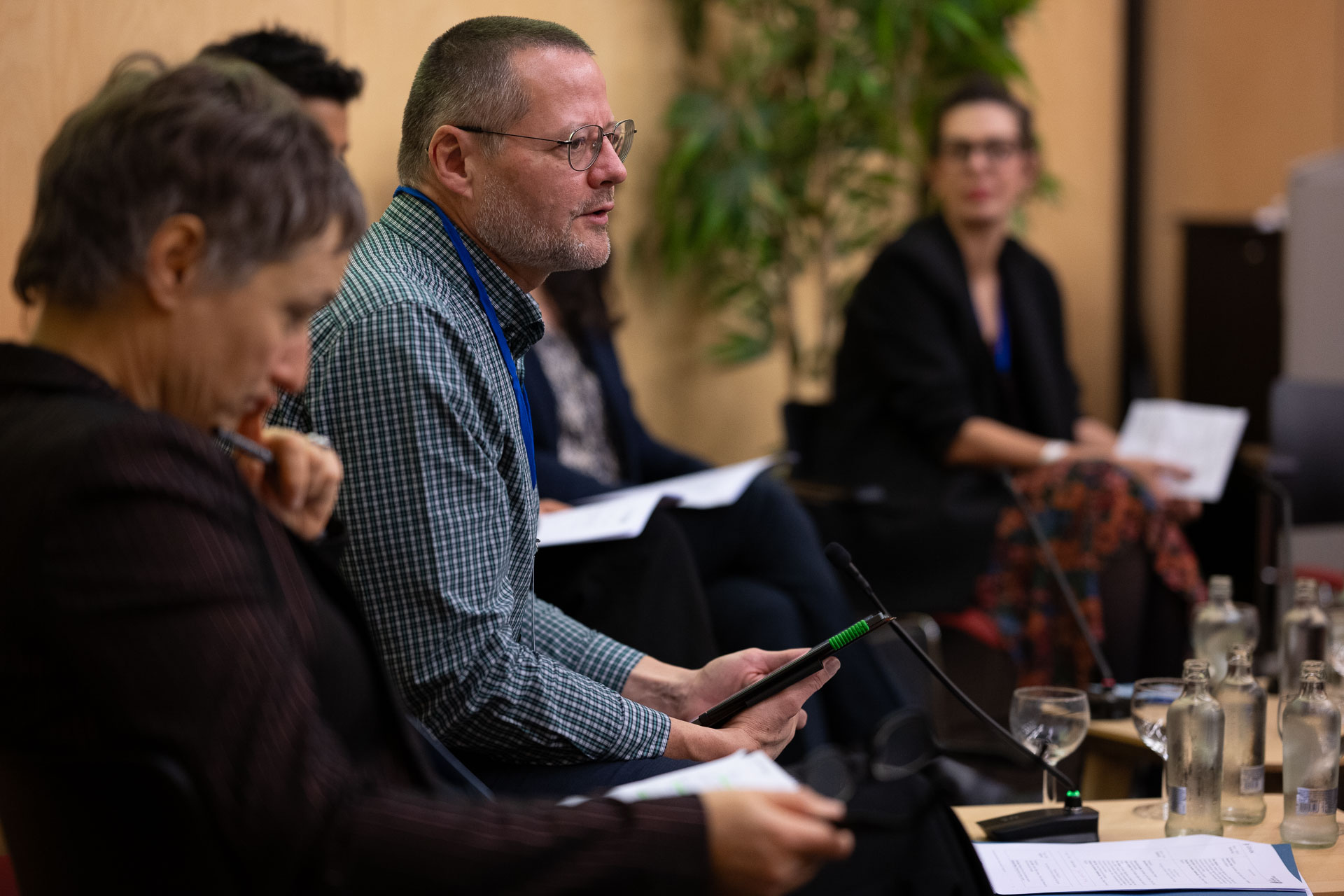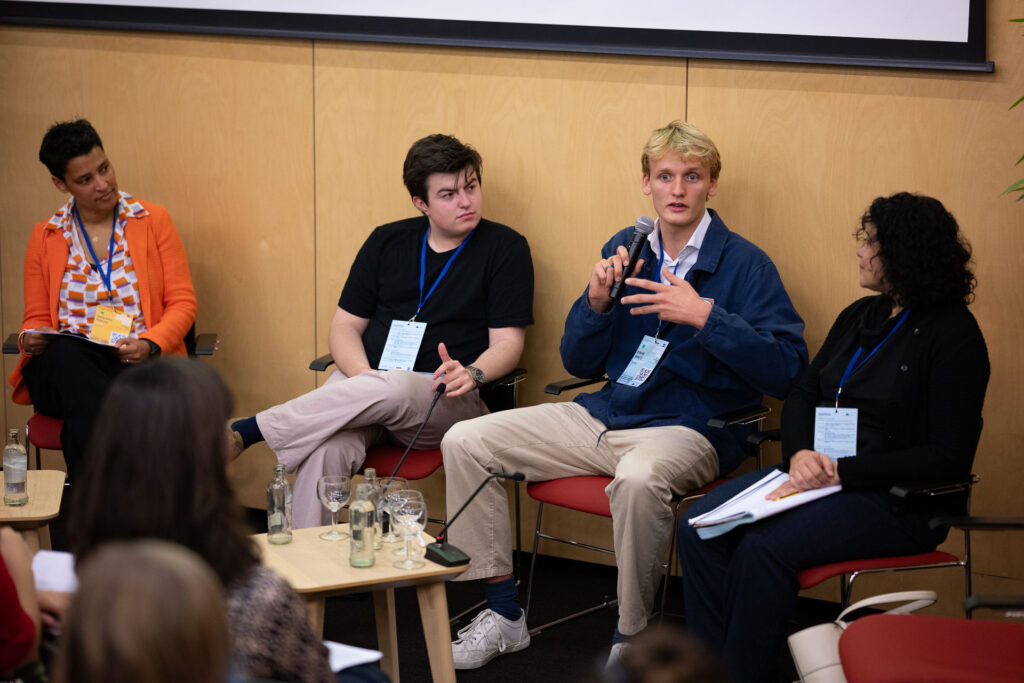A group of young climate activists from Belgium and elsewhere in Europe have called for a seat at the table with climate decision makers, as they led a conference on climate and children's rights in Brussels last Friday.
Young activists, students, academics and policymakers met in Brussels on Friday to discuss how the justice system can be transformed to meet the needs of children and young people affected by climate change.
Organised by the Child Friendly Justice European Network (CFJ-EN) in partnership with Terre des hommes Foundation (Tdh) and CICS.NOVA, the findings of the event will be brought forward to a World Congress on Justice with Children in Madrid next June.
"The main takeaway I want adults to understand is that we are capable, and we can make change and we can empower young people," said 15-year-old Ioana Mihăilescu from Romania, who sits on the Child Advisory Board of Terre des hommes Romania.
"What we truly need is for adults to trust us and to see us as activists, not just children, because we can, and we will show you," she told the crowd at the end of the conference.
Connecting climate with children's rights
17-year-old Benjamin Van Bunderen Robberechts from Belgium was always a climate activist, but he began to focus on the human toll of the climate crisis after a flash flood in Belgium in 2021 took the life of his friend Rosa. He told The Brussels Times that often people do not connect the climate crisis with children's rights.
"Children's rights and climate are so interconnected, but people don't necessarily see it that way. I don't think they have thought about it yet, so it's important [for events like this] to make that connection," he said.
Meanwhile 19-year-old Oskar Bonte, also from Belgium, said it was an opportunity for young activists to express their views on the current justice system, as well as connect with each other. "Sometimes you feel alone as an activist, so it's nice to connect with other people who know what it's like and to go back home filled with energy," he said.
Bonte is a youth ambassador at the Flemish Youth Council. According to him, there is a "big gap" between the words and actions of politicians on climate policy, so now is the time for youth action.
"If you see injustices in society, don't just scroll on your iPhone and watch it happen, engage yourself. As individuals, we can have a big impact. It's very easy to accept the world as it is, and it's harder, but way more important, to work towards the world as it should be," he added.

Attendees at the CFJ-EN conference on how climate change affects children's access to justice. Credit: Simon Blackley / CFJ-EN
Protests and participation
Elisa Morgera, UN Special Rapporteur on Climate Change and Human Rights, also attended the conference. She said that it can be difficult for children and young climate activists to be taken seriously – both in terms of being allowed to protest, and to have a seat at the decision-making table.
Earlier this month, young Swedish activist Greta Thunberg was arrested in Brussels (along with nearly 100 climate activists) for blocking a road in front of Rogier metro station during a protest.
"There are many things we can do. I think one is create and ensure safe spaces, both in peaceful protests on the streets, but also in decision-making spaces. But also it's about how all of us, each adult, must be an advocate for children's rights and raise awareness about the fact that they are meaningful partners in our decisions on climate," said Morgera.
Benoît Van Keirsbick, President of CFJ-EN and part of the UN Committee on the Rights of the Child, said the event was also about "gathering the energy" of inspiring young activists and examining how the justice system can be improved to help them enact change.
"We had to look at this issue from different angles, including the experience of the children, what the science says, and also how the courts are changing their approach to be able to look at the situation from a child's point of view. This conference was very timely in that regard," he said.

Benoît Van Keirsbick, CFJ-EN President. Credit: Simon Blackley, CFJ-EN
Also at the conference were Cláudia Duarte (21) and Martim Agostinho (21) from Portugal. Along with five other young people, they filed a complaint with the European Court of Human Rights against 32 countries for failing to take action on climate change.
Among other things, they claimed that their right to life is threatened by the effects of climate change in Portugal, such as forest fires. The case was eventually dismissed earlier this year on a technicality, as the European Court said that the young people did not have standing to take a case with such a broad geographic reach, and failed to take domestic legal action in Portugal.
Fighting for a future
Cláudia said that it is "getting very dangerous for children and young adults to become activists," but that regardless she is involved in activism because she is "worried about our future."
"If I wanted to pass a message on to somebody in power, it would be to make good decisions that can give us our future. If we want to have a family or have kids, we probably won't, because what future will we give them? It's not very promising, so I think they should be more aware of that, and think about our rights," she said.
Meanwhile, Martim wants to encourage more young people to get involved in activism. "This is our fight. We have nothing to lose in this fight. Because if you lose the fight, you lose everything."

